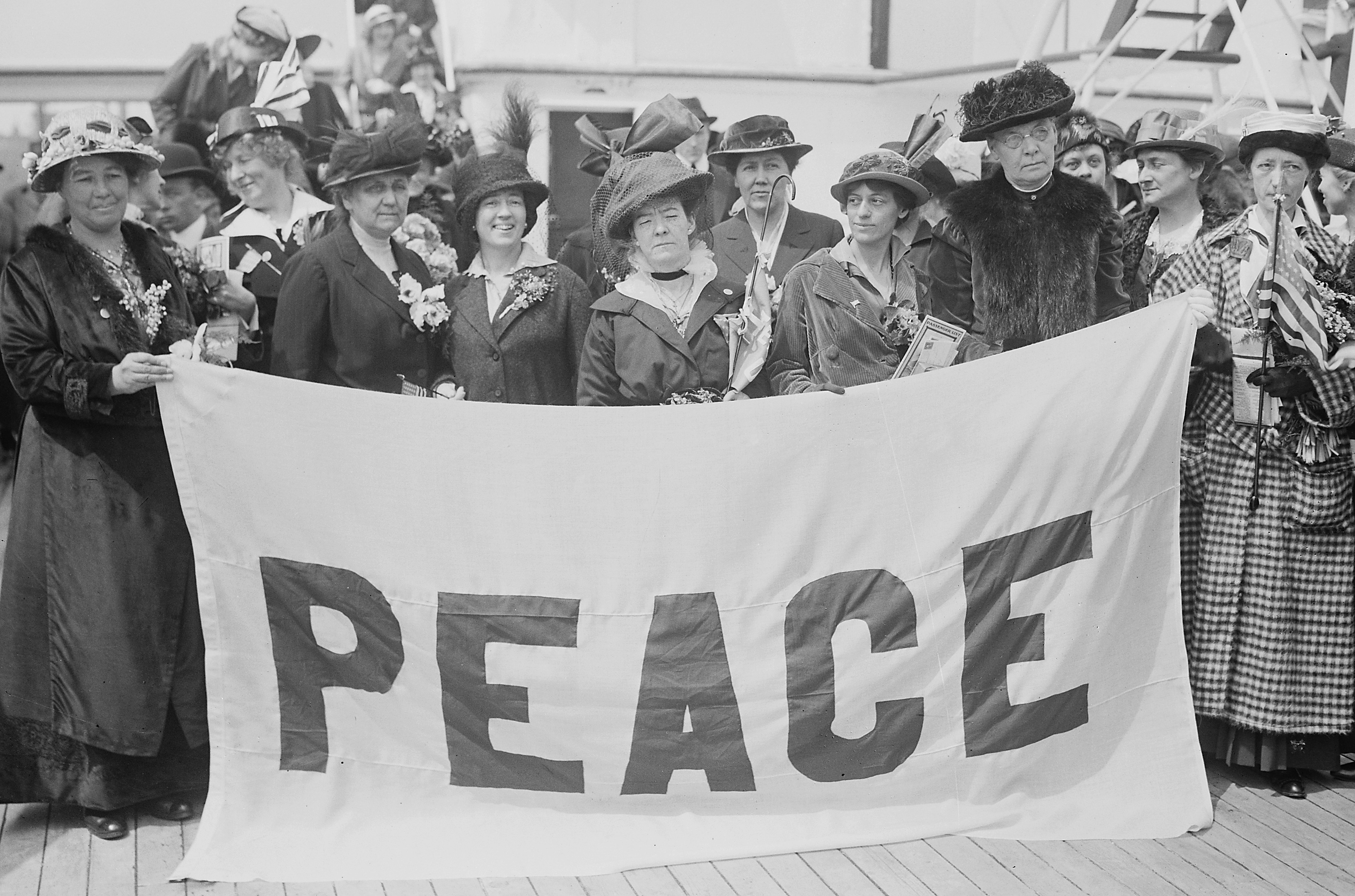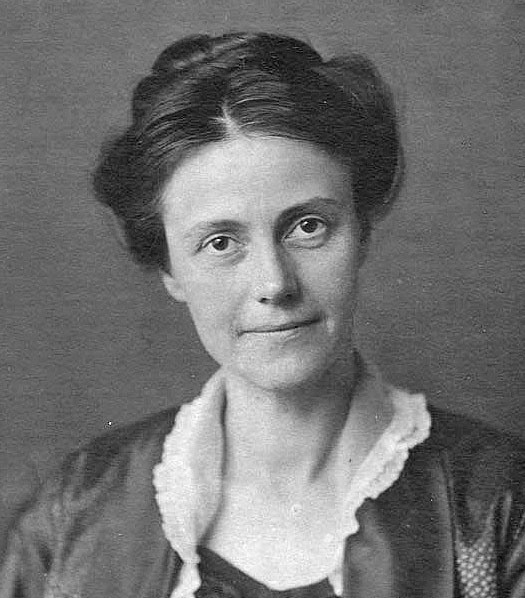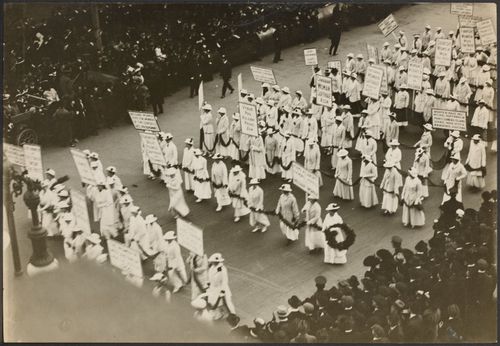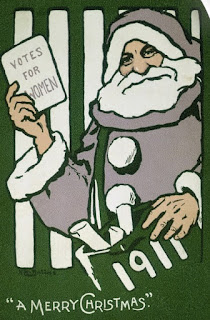Tuesday, December 31, 2019
Wednesday, December 25, 2019
The Open Christmas Letter
Five months into World War I, Europeans braced themselves as it became apparent that the war was not going to be a brief one. The toll on a generation of young men was great; technological warfare was introduced during this war as mustard gas, tanks, and automatic weapons killed and wounded more than Europeans had anticipated. Christmas of 1914 was a unique moment during the war; a number of unofficial ceasefires occurred and the troops from both sides celebrated the holiday together. For more insights you can read here.
On December 23, via suffragist Emily Hobhouse, this article was published in London:
A call for peace also came from some British women. On December 25, 1914, a public letter was released by British suffragettes. Signed by 101 suffragettes, it was addressed to the women of Germany and Austria on the first Christmas holiday during World War 1.
Is it not our mission to preserve life? Do not humanity and common sense alike prompt us to join hands with the women of neutral countries, and urge our rulers to stay further bloodshed?...Even through the clash of arms, we treasure our poet's vision, and already seem to hear
"A hundred nations swear that there shall be Pity and Peace and Love among the good and free."
May Christmas hasten that day.

In the U.S., there was a pacifistic tendency particularly among intellectuals. Among them was Julia Grace Wales, a Canadian born scholar who taught at the University of Wisconsin. Stories from the front weighed heavily on her as well and in December of 1914, she devised the Continuous Mediation Without Armistice Plan. Later called "The Wisconsin Plan", the plan sought for the U.S. to bring together intellectuals from all the nations as a way to promote a longstanding peace with a two fold plan: to provide peace without humiliation to any nation and exclude compromises that could rekindle the war.

Julia Grace Wales
The plan was adopted by the International Congress of Women and many scholars feel it was the basis of the short lived League of Nations and Wilson's Fourteen Points.Beth and I wish you a holiday of peace and a new year full of kindness and joy!

Tuesday, December 24, 2019
Monday, December 23, 2019
The Suffrage Christmas Tree Party
Alva Belmont was a multi-millionaire and a big supporter of women's suffrage. She will be featured a number of times during the 2020 year. In the early part of the twentieth century, she with assistance of the Collegiate Equal Suffrage League (college students) decided to help the local poor children by sponsoring a Christmas party on Christmas Eve.
A nice suffrage doll my Mom gave me!
The intent was well-meaning and an opportunity to encourage more mothers to join the suffrage cause. The college students had distributed leaflets throughout the community.
Despite their good intentions, the plan went a bit awry when the children began to arrive at 6 p.m. instead of the appointed hour of 8. No one anticipated that TWO THOUSAND children would attend!
According to newspaper accounts, 4 police were at the event and had a heck of a time preventing the kids from getting trampled or hurt. The kids were disappointed that Mrs. Santa showed up instead of Santa himself.
The college women had donated 800 presents and Mrs. Belmont had contributed another 500 gifts--which meant that about 700 went home empty handed (although there was apparently plenty of candy for the kids).
The kids that hadn't received presents were told to return another night (and you can bet Mrs. Belmont made sure there was a new stash of gifts).
At the end of the event, the tree was chopped up and the wood sent home with the kids (probably for firewood).
"The suffragists say the next time they have a Christmas tree they will know the number of guests in advance," one newspaper reported.
I found that in later years the suffragists did hold Christmas parties, but mostly as a fundraiser for needy families in their location.
Have a splendid day!
Saturday, December 21, 2019
Xmas Notions
Are you ready for the holiday? It's that wonderful time when we are rushing around to complete all the holiday preparations.
As we have seen, sewing remained a part of suffragists lives. So this ad was particularly interesting right before Christmas.
From Minneapolis:
I was curious what a spool holder looked like and found this image:

If you are wishing you had some "Votes for Women" ribbon, I found the ribbon above at Zazzle. Unfortunately because it is still dark yet, the photo doesn't give a good rendering of the background color of gold. The printing is a bit off but it will work for my craft project.
Hope all your holiday shopping is finished and you can relax the next few days! Have a great day!
Tuesday, December 17, 2019
"Do You Use a Sewing Machine?"
Kath Conway, I'm still trying to reach you! You won the giveaway, please email me your address at allentownquilter@gmail.com
There's no other way to put this: some people objected to women voting because we were believed to be too stupid.
There's no other way to put this: some people objected to women voting because we were believed to be too stupid.
Early 20th century cartoon
There must have been some debate among Antis as to whether or not a woman could handle the technicalities of placing a ballot in a box. In 1915, New York suffragists published a pamphlet to dispute this idea in terms that you and I enjoy. 1915 was the year that NY, PA, NJ, and Massachusetts all had a referendum on the ballot in the fall for (male) voters to determine whether or not women should vote.
Here is the pamphlet, enjoy!
Saturday, December 14, 2019
Monday, December 9, 2019
Christmas gift and giveaway
The book, An Anti-Suffrage Alphabet is a bit misleading. It wasn't actually published in Britain by Antis but created by the Women's Social And Political Union (WPSU) as a fundraiser for Christmas 1911. The book featured different aspects of women's subordination to men in society. The images were actually stenciled and printed individually for folks who ordered them:
Doesn't it make you wonder how many Antis bought this thinking they were going to get propoganda that suited their perspective?
Beth and I are in the holiday spirit so we are featuring another giveaway. You have until Friday to comment on our blog. We are giving away John Q. Adams book Quilting Beyond Neutrals: Quilts Inspired by Nature's Elements with some fabric and other goodies in the package!
We are well aware that many of you are finishing Christmas presents but we chose this book because most quilters share a commonality after the holidays. We like to clean up our sewing rooms and then use up scraps and this book is a perfect tool for scrap quilts! Just leave a comment and we'll get put your names in our suffrage hat to randomly choose a winner!
Have a great day!
Thursday, December 5, 2019
You need a hat.
Suffrage Hats
It shouldn't be surprising that suffragists promoted certain fashion attire. Hats seemed to be a particular favorite of 20th suffragists and were part of a normal woman's attire.
British Suffragette hat, 1911
Of course American women wore hats for the cause. However, the price of the hat depended on where you lived.
This hat was advertised for the New York suffrage parade on May 4, 1912. The price in Arkansas and Washington D.C. was 28 cents. It was much more expensive in Kentucky at 38 cents:
And even higher in Ohio:
After the parade was held, a new 37 cent hat became the rage:
The idea of wearing the same hat was more about uniformity; the message--not the clothing--was important.

1913 Suffrage Parade in New York
The 1915 hat, adorned only with a ribbon of suffrage colors was to be worn in the October 1915 New York parade. No price was listed.
In May of 1916, more hats were advertised:
Note the price differences in the two hats. However, a month later, newspapers across the country listed the NAWSA hat at 25 cents.
Not sure if this is the same hat listed above but it was worn by suffrage protesters to parade at the same time as the Republican Convention:
Nina Allender was the illustrator for The Suffragist, the newspaper published by the National Woman's Party. She often used elements of the movement as metaphors in her illustrations:
Have a great day and you may need a hat today, it's supposed to be cold!
Tuesday, December 3, 2019
Detroit, MI: Sewing for the Cause!
Mrs. Brotherton of Detroit, Michigan had two problems. She needed an extensive set of napkins hemmed by hand for her daughter's upcoming wedding and she needed to raise money for the suffrage cause.
Mrs. B. combined the problems. "I'm having a suffrage sewing bee and paying my guests to come and sew for me--see to it that every cent I pay, goes into the suffrage society treasury."
Mrs. B. combined the problems. "I'm having a suffrage sewing bee and paying my guests to come and sew for me--see to it that every cent I pay, goes into the suffrage society treasury."
The guests had a wonderful time and apparently enjoyed a delicious gateaux (rich cake). The women made up little ditties as they sewed. Here is my favorite:
"I've met some noble Williams,
And some dashing chaps named Will.
But the boy who'll conquer Lansing yet,
is just plain suffrage Bill."
Subscribe to:
Comments (Atom)
































